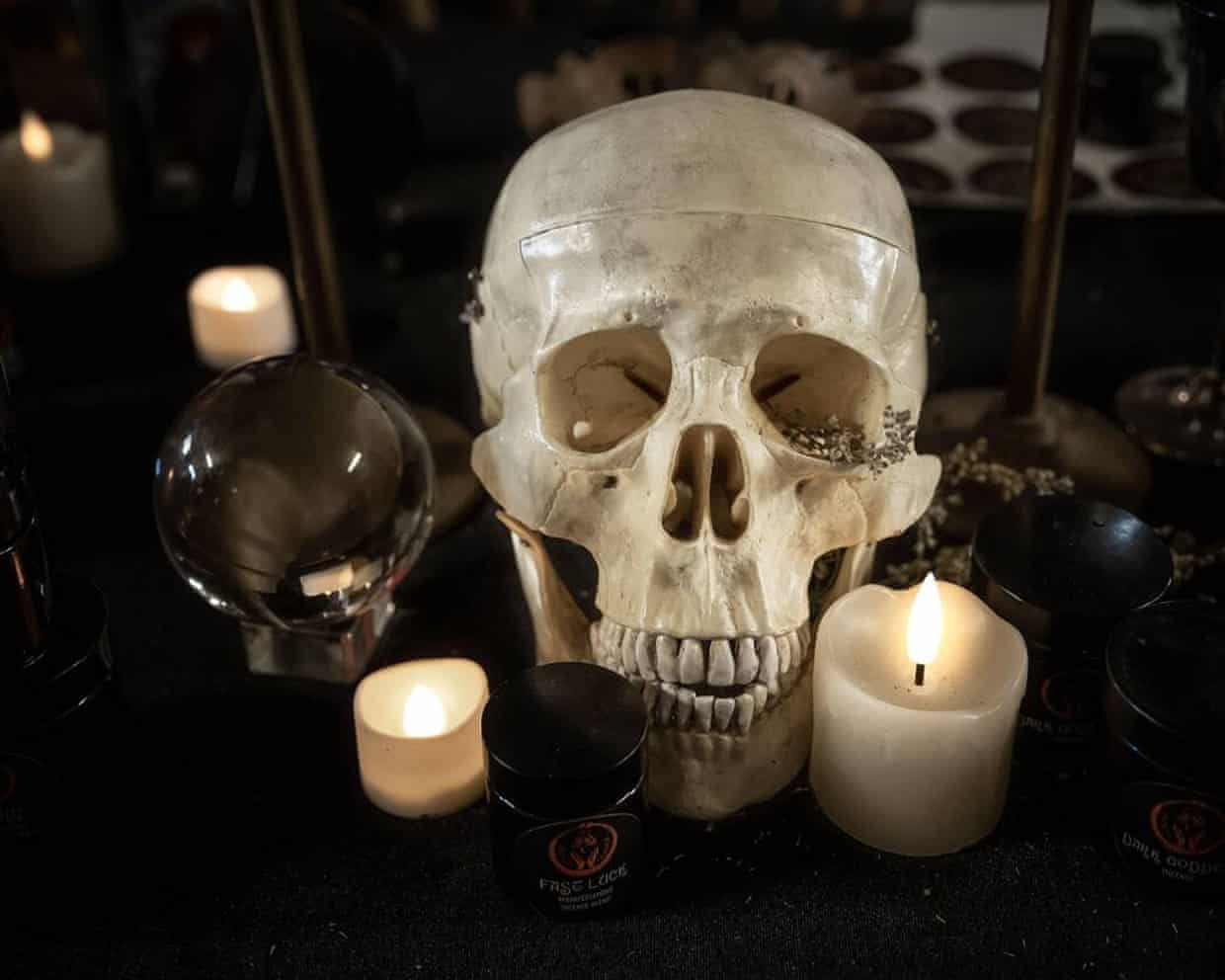Science
Experts Demand Regulation in Growing Trade of Human Remains

The increasing trade in human remains has prompted calls for greater regulation in the UK, as experts express concerns about the ethical implications of such sales. Shops like Curiosities from the 5th Corner in Essex, owned by Henry Scragg, are at the forefront of this controversial market. Scragg’s establishment sells a range of human relics, including skulls, mummified body parts, and even a subscription service for monthly human skull deliveries.
The legality of these sales remains ambiguous. While there is no outright ban on trading in human remains, experts warn that the absence of clear regulation allows for practices that may lead to unethical sourcing. Dame Sue Black, a prominent forensic scientist, emphasizes that the growing online market risks reviving practices reminiscent of “body snatching.” Reports indicate that some individuals are illegally exhuming bodies from cemeteries to sell remains to collectors who find them appealing for their gothic or supernatural associations.
“Having a necklace made out of somebody’s teeth isn’t acceptable to people,” stated Black, who serves as the president of St John’s College at Oxford University. Current laws in the UK allow for grave desecration to be prosecuted, but they do not classify human remains as property, complicating legal action against those who sell them.
Dr. Trish Biers from the University of Cambridge leads a taskforce dedicated to monitoring the trade of human remains. She noted a significant rise in the number of sales in recent years, with over 200 transactions blocked by the British Association for Biological Anthropology and Osteoarchaeology (BABAO) within the past five years. While the market has traditionally focused on medical specimens, Biers pointed to a disturbing trend of selling skulls labeled as “archaeological,” which may have been unlawfully excavated.
The influence of social media on this trade cannot be overlooked. Biers remarked, “Social media has completely changed the market. It’s not illegal, and that’s the problem.” The platform has allowed sellers to reach a wider audience, often without the oversight needed to ensure ethical practices.
Concerns about the implications of this trade were echoed by Mattaeus Ball, a trader in macabre art, who recently announced his decision to cease dealings in human remains. He expressed discomfort with the potential for stolen items among his inventory, stating, “The waters are becoming too muddy with stolen pieces.”
Investigations into online sales have raised alarms. Images of skulls marketed on social media platforms revealed features consistent with recent excavations, including signs of soil damage and organic matter. One skull, priced at £995 on a Belfast-based website, showed evidence of root damage, suggesting it had been buried. Forensic experts highlighted that at least three skulls displayed signs of decomposition consistent with having been removed from graves.
Dr. Nicholas Marquez-Grant, a forensic anthropologist, indicated that some of the skulls may have originated from outside the UK, potentially dating back as far as the 19th century. The implications of trading in these remains are particularly concerning for Indigenous communities, as highlighted by Paul Boateng, who plans to meet with Culture Secretary Lisa Nandy to advocate for legal reform. He stated, “The continual trade in human beings even after death… is deeply repugnant and a source of shame to our country.”
Currently, the private trade of human remains often falls outside the scope of the Human Tissue Act 2004, which regulates the use of human tissues but only pertains to remains younger than 100 years. This act specifically addresses consent and ethical use in medical contexts, leaving a gap in regulations for collectors and sellers of older remains.
Imogen Jones, a law professor at the University of Leeds, remarked that recent high-profile cases demonstrate a need for updated laws that reflect the public’s expectation for dignity and respect in handling human remains. “The private use of these things is in a legal void,” she said.
As discussions regarding the ethical implications of this trade continue, the UK government has acknowledged the need for scrutiny. A spokesperson for the Department for Culture, Media and Sport indicated that all human remains should be treated with respect and dignity, emphasizing that auction houses and sellers must carefully consider the ethical dimensions of their activities.
In this evolving landscape, the balance between curiosity and ethical responsibility remains a critical challenge, as experts call for a reassessment of the laws governing the sale of human remains.
-

 Entertainment2 months ago
Entertainment2 months agoIconic 90s TV Show House Hits Market for £1.1 Million
-

 Lifestyle4 months ago
Lifestyle4 months agoMilk Bank Urges Mothers to Donate for Premature Babies’ Health
-

 Sports3 months ago
Sports3 months agoAlessia Russo Signs Long-Term Deal with Arsenal Ahead of WSL Season
-

 Lifestyle4 months ago
Lifestyle4 months agoShoppers Flock to Discounted Neck Pillow on Amazon for Travel Comfort
-

 Politics4 months ago
Politics4 months agoMuseums Body Critiques EHRC Proposals on Gender Facilities
-

 Business4 months ago
Business4 months agoTrump Visits Europe: Business, Politics, or Leisure?
-

 Lifestyle4 months ago
Lifestyle4 months agoJapanese Teen Sorato Shimizu Breaks U18 100m Record in 10 Seconds
-

 Politics4 months ago
Politics4 months agoCouple Shares Inspiring Love Story Defying Height Stereotypes
-

 World4 months ago
World4 months agoAnglian Water Raises Concerns Over Proposed AI Data Centre
-

 Sports4 months ago
Sports4 months agoBournemouth Dominates Everton with 3-0 Victory in Premier League Summer Series
-

 World4 months ago
World4 months agoWreckage of Missing Russian Passenger Plane Discovered in Flames
-

 Lifestyle4 months ago
Lifestyle4 months agoShoppers Rave About Roman’s £42 Midi Dress, Calling It ‘Elegant’









